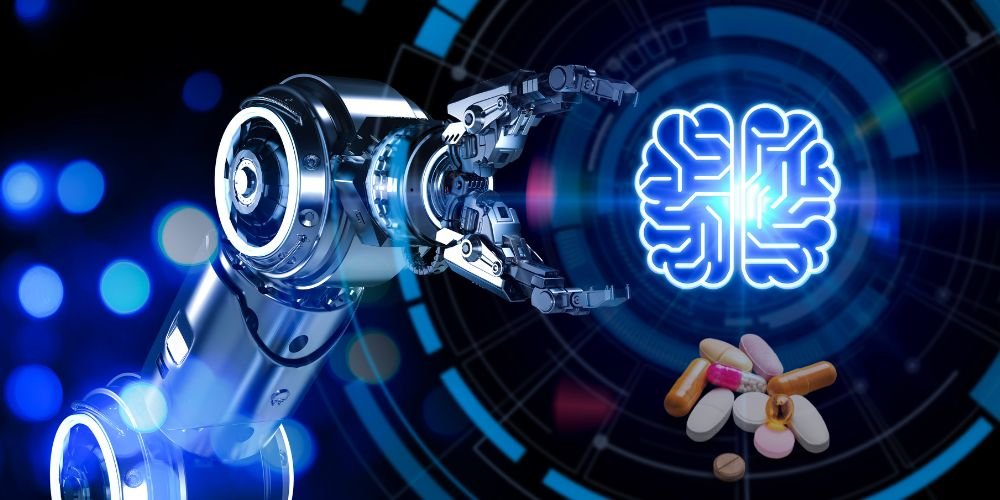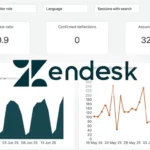In the rapidly advancing healthcare landscape, machine learning (ML) emerges as a transformative force, leveraging intelligent algorithms to process vast amounts of data, extract meaningful insights, and enhance decision-making in medical practices. This article explores the significance of machine learning in medicine, its evolution, applications, challenges, and its profound impact on reshaping healthcare service delivery.
Significance of Machine Learning in Medicine
Machine learning in medicine holds profound significance because it offers advanced tools and techniques to analyze complex healthcare data. Its ability to recognize patterns, predict outcomes, and provide personalized insights contributes to improved diagnostics, treatment planning, and patient care.
Enhanced Diagnostics and Disease Prediction
One of the primary significances of machine learning in medicine is its impact on diagnostics and disease prediction. Machine learning algorithms analyze medical imaging, genetic data, and clinical records to detect patterns indicative of cancer, cardiovascular conditions, and neurological disorders. It leads to earlier and more accurate diagnoses, allowing for timely interventions and improved patient outcomes.
Personalized Treatment Plans
To develop personalized treatment plans, machine learning algorithms analyze patient data, including genetic information, treatment responses, and medical histories. By considering individual variations and predicting responses to specific therapies, machine learning contributes to precision medicine, optimizing treatment efficacy and minimizing adverse effects.
Drug Discovery and Development
In pharmaceuticals, machine learning accelerates drug discovery and development processes. Intelligent algorithms analyze vast datasets to identify potential drug candidates, predict their efficacy, and streamline the identification of novel compounds. It can reduce the time and costs of bringing new drugs to market.
Evolution of Machine Learning in Medicine
The evolution of machine learning in medicine is closely tied to advancements in computational power, data availability, and the development of sophisticated algorithms.
Integration of Electronic Health Records (EHRs)
The widespread adoption of Electronic Health Records (EHRs) has played a pivotal role in the evolution of machine learning in medicine. EHRs provide a comprehensive digital platform for storing patient data, enabling machine learning algorithms to analyze and extract valuable insights for decision support.
Advancements in Imaging Analysis
Machine learning has significantly evolved in the analysis of medical imaging data. Computer vision algorithms can detect anomalies in X-rays, MRIs, and CT scans, assisting radiologists in identifying and diagnosing conditions more accurately. This evolution enhances the efficiency and accuracy of medical imaging interpretation.
Natural Language Processing (NLP) for Text Data
Integrating Natural Language Processing (NLP) into machine learning applications facilitates the analysis of unstructured text data, such as clinical notes and medical literature. NLP algorithms can extract valuable information, identify trends, and contribute to understanding patient histories and treatment outcomes.
Applications of Machine Learning in Medicine
Machine learning finds diverse applications across various medical domains, influencing diagnostics, treatment planning, and healthcare management.
Medical Imaging and Diagnostics
In medical imaging, machine learning algorithms assist in interpreting radiological images. Whether identifying tumors, assessing the progression of diseases, or detecting abnormalities in scans, machine learning enhances the diagnostic capabilities of healthcare professionals.
Predictive Analytics for Patient Outcomes
Machine learning enables predictive analytics for patient outcomes by analyzing historical data to identify risk factors and predict potential complications. These models assist healthcare providers in proactively managing patient care, reducing hospital readmissions, and optimizing treatment plans.
Virtual Health Assistants and Chatbots
Virtual health assistants and chatbots powered by machine learning contribute to patient engagement and support. These intelligent systems can provide information, answer queries, and assist in preliminary diagnostics, enhancing communication between patients and healthcare providers.
Challenges in Machine Learning in Medicine
While machine learning in medicine offers tremendous potential, it faces challenges related to data privacy, model interpretability, and the need for validation in clinical settings.
Data Privacy and Security Concerns
Machine learning algorithms require access to large datasets for training, raising concerns about data privacy and security. Protecting sensitive patient information and ensuring compliance with data protection regulations are critical considerations in developing and deploying machine learning models in healthcare.
Interpretability of Machine Learning Models
The interpretability of machine learning models poses a challenge, particularly in healthcare, where decisions can have profound consequences. Ensuring that healthcare professionals can understand and trust the outputs of machine learning models is crucial for their widespread adoption and acceptance.
Validation and Integration into Clinical Practice
Machine learning models must be validated to demonstrate their efficacy and safety in clinical settings. Integrating these models into existing healthcare workflows requires careful consideration of regulatory standards, ethical guidelines, and collaboration between data scientists and healthcare professionals.
Future Directions of Machine Learning in Medicine
The future of machine learning in medicine holds exciting possibilities, including advancements in explainable AI, integration with wearable devices, and increased collaboration between healthcare and technology domains.
Explainable AI for Transparent Decision-Making
Integrating explainable AI into machine learning models will enhance transparency and interpretability. Understanding how algorithms reach specific conclusions is crucial for healthcare professionals and patients to trust and act upon machine learning systems’ recommendations.
Integration with Wearable Devices for Continuous Monitoring
Machine learning will be central in integrating wearable devices for continuous health monitoring. Smartwatches, fitness trackers, and medical-grade wearables can provide real-time data, allowing machine learning algorithms to assess health metrics and detect early warning signs, leading to proactive interventions.
Collaborative Research Initiatives
The future of machine learning in medicine involves increased collaboration between researchers, healthcare professionals, and technology experts. Collaborative research initiatives will contribute to developing more robust machine-learning models that address specific healthcare challenges and improve patient outcomes.
Conclusion
Machine learning in medicine represents a paradigm shift in healthcare delivery, making it more data-driven, precise, and personalized. As technology advances, the responsible application of machine learning holds the promise of improving health outcomes, transforming treatment approaches, and optimizing the efficiency of healthcare systems. Overcoming challenges and embracing future innovations will ensure that machine learning continues to play a central role in shaping the future of medicine.





